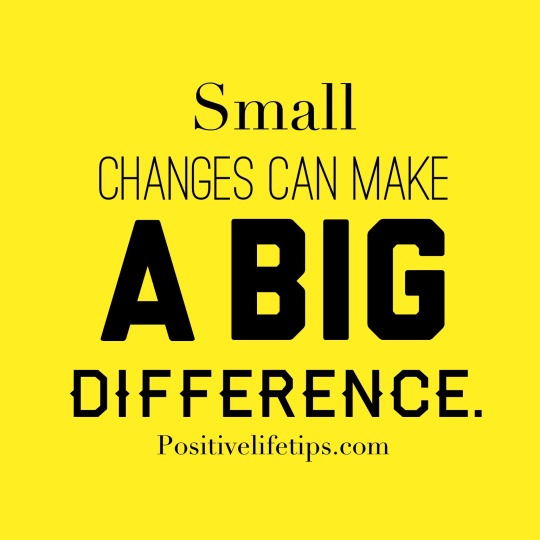By Lisa Crumit-Hancock, Assistant Dean of Student Success @ Defiance College. Thoughts, strategies, and motivation for college students to succeed in their academics
Don't wanna be here? Send us removal request.
Photo

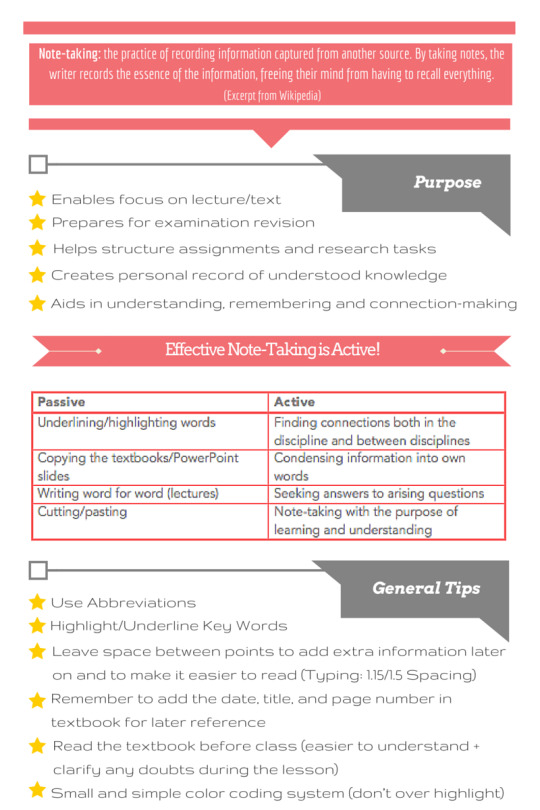
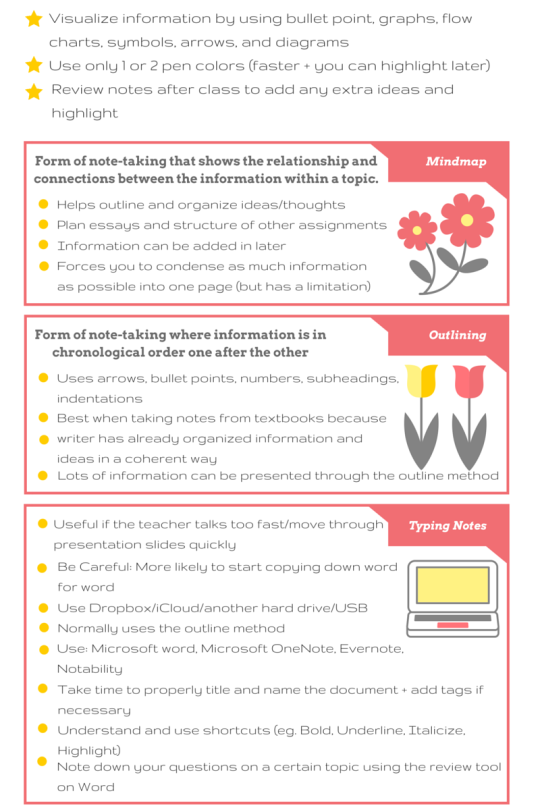
Hello! This is the first post in my new Study Series! It took a while to create this, and I hope that you all enjoy…
@springinseptember I hope this helps and answers your question xx
(the background picture is by Vinn Wong, called Springtide)
968 notes
·
View notes
Quote
I guess you could call it a ‘failure’, but I prefer the term ‘learning experience’.
Andy Weir, The Martian (via wordsnquotes)
3K notes
·
View notes
Text
5 Tips for Getting Productive
1. Write your ideas down
Get a notebook, or use notes, but scratch or scrawl ideas as they come. Don’t worry about how neat and orderly they are. Messes are fine. Also don’t worry about what notebook you use. It really doesn’t matter, and it shouldn’t matter — the important thing is its functionality and purpose. Simply get those ideas down. Creativity is a messy beast - you might never predict when an idea will become useful in a project.
2. Exercise regularly
I like to run, but walking is good, a few pull ups, sit ups, push ups, etc. Anything to get the heart beating a little more than usual and the endorphins in the bloodstream. Exercise not only feels good, but it also keeps the brain active and young. Studies have shown correlations between even minimal exercise and both memory and processing speed in the brain.
3. Find the right workspace.
People can be productive anywhere. While some folks are able to work effectively in a home workspace or office, others need the routine of traveling to their workspace, whether it’s an actual office, a co-working space, a studio, a park, or a coffeeshop. If you do need some randomness and life in your workspace in order to keep focused, try to pick a place where the distraction level is such that you can easily return to your work when needed. If you’re in a coffeeshop, choosing the table next to a chatty couple or group might not be the best. If there’s music on and it’s not the kind that can get you in the zone, you might need some headphones to block it out. If you regularly travel by train, consider “the quiet car”. The fact is: everyone has their own environmental needs for working at their best. Experiment to find yours and don’t hesitate to give one up and initiate a change of scenery if you find yourself too distracted.
4. Settle on and in
This one may sound simple, but it can sometimes be quite hard. Settle on the tasks you’ll seek to accomplish and the time you’ll give those tasks. Knowing what you plan to do and for how long will help you get back on track when you inevitably get distracted. Be reasonable though. Planning to write a 2500 word essay in half an hour is probably unrealistic. Everyone has a unique productivity rate. Set a goal for a time period for which you know you’ll be able to get stuff done well, and remember to plan breaks. If you’re aiming at three hours of work, try to give yourself 5-10 minutes after the first and second hours to focus on something else. Settling on is only the half of it — settling in means setting yourself up with the tools you’ll need to finish that work. Do you know you’ll need a coffee to sip on? Get it first so you don’t have to disrupt your flow later on. Have to make plans with your boyfriend? Make a note to text him during a break. Settling in not only means having the foresight to remove the obstacles you know you might encounter. It also means persisting in the face of obstacles. Have you ever sat down to read a book for a class and you just couldn’t get past the 3rd page, suddenly realizing you’ve been rereading the same paragraph for the last few minutes? Settling in means not giving up when you can’t quite get into the zone (which is bound to happen every now and then). Sometimes it takes determination and persistence to get things done.
5. Keep a long-term project going
This should really be something that doesn’t cause you a lot of stress. It could be learning a language, keeping a journal, filling a sketchbook with doodles, writing letters, a brain training app, or something else altogether. Whatever the project, it should be some kind of brain-activating activity and something you can do in small spurts of 15 or 20 minutes. The other important thing is that it’s not a time-sucking activity like Facebook or texting or online dating. Those things are fine for when you’re winding down, but when you’re in the middle of a productivity session, such distractions are more likely to pull your attention too far from your goal, whereas 15 minutes on a long-term project like learning Russian on Duolingo or doodling in a notebook keeps your brain in learning and problem solving mode. When it’s time to switch back to the task at hand - your upcoming blog post, a report for your team leader, the webpage you’re building, it’s much easier to come back to it without a rough readjustment period.
225 notes
·
View notes
Photo

useful study tip!
if you have a question/ if you’re confused about something while studying, write it down on a sticky note and put it next to your notes. That way you’ll remember to research it further or ask your teacher, instead of just letting the confusion continue.
4K notes
·
View notes
Text
Word of the Day: philodox
n. A person who loves or vehemently propounds his or her own opinions; a dogmatic or argumentative person

Image: “Savonarola Preaching Against Prodigality” by Ludwig von Langenmantel. Public Domain via Wikimedia Commons
104 notes
·
View notes
Photo
Interesting organization system...
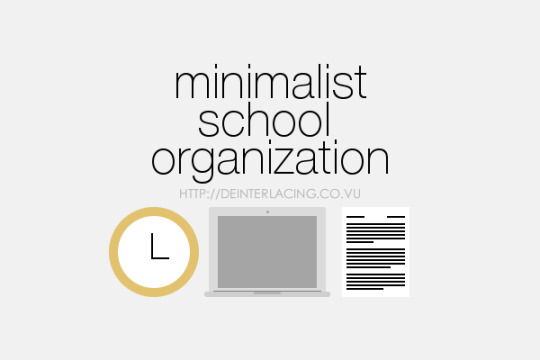
Hello, friends! I’ll walk you through an organization system that’s simple, quick, and easy–like spaghetti alla puttanesca. ( ͡~ ͜ʖ ͡°)
I should say it early on that this method requires both digital and analog media. It aims to minimize unproductive pseudo-busywork/unnecessary effort in the process of organizing schoolwork. The time it frees up can be used for actual learning, self-care, or whatever it is that you like to do! (・∀・)ノ
Disclaimer: I deliberately removed social media/gaming apps from my phone. Wifi access is almost always switched off. It’s strictly used for calling, SMS, the occasional photo, and various school-related apps.
Ready? One, two, three–go!
Time Management
▨ Assignment Masterlist
Jot down tasks (and their corresponding dates, if available) as soon as you get them. Get shit out of your head and filed into a place where you can find them easily.
I keep a list of all the things I need to get done in the Notes app that comes with my phone. Digital lists are that much easier to update–you can remove, add, and rearrange tasks however you find it necessary.
During your downtime (wherever you may be), parse through your list aggressively divide big assignments into smaller, bite-sized pieces. Regroup tasks such that errands are batched together and study sessions are spaced apart. The idea is to butcher the wolf into a bunch of tiny sheep so that they’re easier to tackle later on.
(Alternative App: Evernote.)
▨ Calendar
I spend a lot of time on my computer for school stuff, so I’m quite comfortable with using a digital calendar–they just make it super simple to color code, schedule recurring events, and generate multiple calendars that run in parallel. I have the iCal app docked on my taskbar for easy access, and I default to the monthly view.
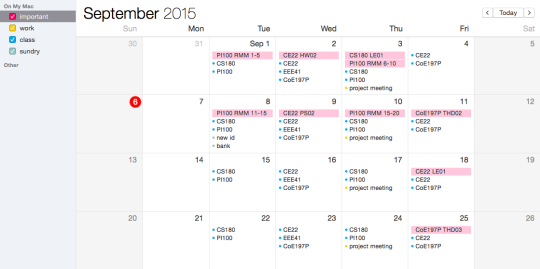
You can see that I don’t encode strict study schedules–excess rigidity stresses me out and from there, I’d find it super hard to find my fucking chill. ( ˃̩̩ ⌂ ˂̩̩ )
It takes a bit of discipline and sincere focus on my part, but I’ve found that the flex time (1-1.5 hours) between my classes is enough to finish a good portion of my readings or to accomplish one block in my programming homework. I also do study stuff after classes without prompt from a schedule–just my calendar with deadlines and my assignment masterlist. These time pockets should not be underestimated!
(Alternative App: Google Calendar.)
Digital Management
▨ Folders
Whenever available, I save digital copies of lecture slides, assignment specifications, textbooks, scripts, and anything I could possibly need.

Instead of leaving everything to rot in the downloads folder, I make sure that each course has its own section in my college folder. It takes around 5 seconds of my life to perform this rename-and-move-to-proper-folder ritual.
Each file starts with the name of the course, and then followed by a short description about its contents. It’s a habit I got from my thesis adviser, actually. This makes everything hella easy to find.
▨ Evernote
I use this app to take notes on everything–academic or otherwise. I have a separate notebook stack specifically for scholastic purposes, and I like that it’s very compact and all my notes are in one place.
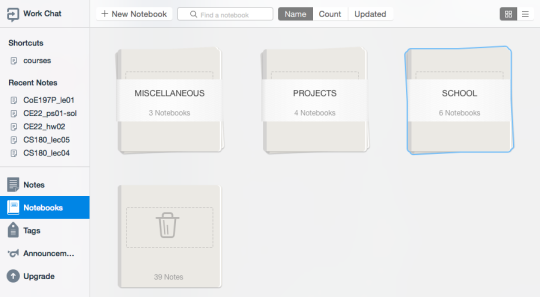
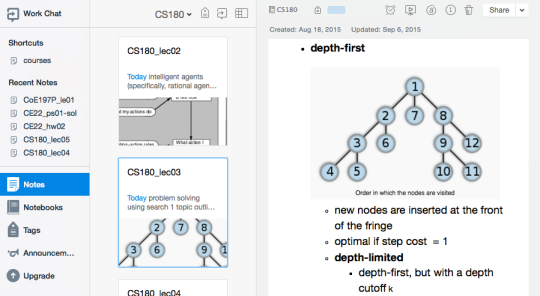
In separate post, I will talk about how I manage to learn from digital notes despite all those claims that physically writing down your notes helps you better. ( U v U ) <3
Paper Management
▨ Accordion File
Since I digitize as much of my shit as I possibly can, paper stuff for all of my 5 courses fit into one A4-sized accordion file (with 12 built-in pockets). It eliminates the need for hole punch and the fear of things falling out. It also fits a range of paper sizes!
Each tab is labeled accordingly. Some classes need more sections than others, but in general:
each class gets their own notes section;
math-based classes get their answerables section (for problem sets under the works); and
reading-based classes get their readings section;
non-academic documents and receipts get their own miscellaneous section.
I use these binder clips to hold small stacks [of readings or of problem sets] together. They’re super fucking pretty, oh my god. I’m a goner. They’re gold and I’m in love. You can’t stop me. (◕ᴗ◕✿)
And that’s it!
You’ll notice that my system is really spartan, but I’ve figured that simple systems work and it’s really nice to use the time I would’ve spent compulsively making stuff look pretty on things that’re more important to me (like practicing my figure drawing or creating stuff for this blog or being trash with my friends).
I hope you picked up something useful from this post! Tell me if you’ve got any questions/ideas/comments. If you’d like, tell me about how you organize your time and your stuff for school–I’d love to see!
(人^ ∀ ^) ✿
10K notes
·
View notes
Photo


How I Format and Use Flashcards
1. Less is More: no need for a paragraph to define a term, choose the simplest and most efficient one. Also, don’t include common sense things or things you know by heart, you’ll waste time and space by writing them down.
2. Sketch it Out: Sketches can be helpful in allowing you to visualize the term/concept.
3. Say it Out Loud: When reviewing through the cards, try and say the definition out loud. It will require you to think about it more, and it also helps with memorization. If I try and define a term in my head I usually speed through it and leave something out.
4. Write them as you go: Don’t sit down right before finals and try and write down every term/definition from the course. It takes forever and you will kill your hand. As you finish a chapter in the course finish that set of flashcards. You will thank yourself later.
5. Repetition: I go through my flashcards before a test maybe a thousand times (exaggeration but very close). Remember to focus on the harder ones, you’ll most likely remember the easier ones during the test.
Here is my method:
Round 1: Go through every single card. Don’t set any aside. I usually don’t know a majority of the terms at this point, I most likely just finished writing them down.
Round 2: Go through every card again, this time setting aside ones I didn’t know or had trouble with.
Round 3: Go through the harder ones I missed.
Round 4: Add the harder ones back in with the original and shuffle.
Round 5: Go through them all and repeat the process until pleased!
18K notes
·
View notes
Link
1 note
·
View note
Photo
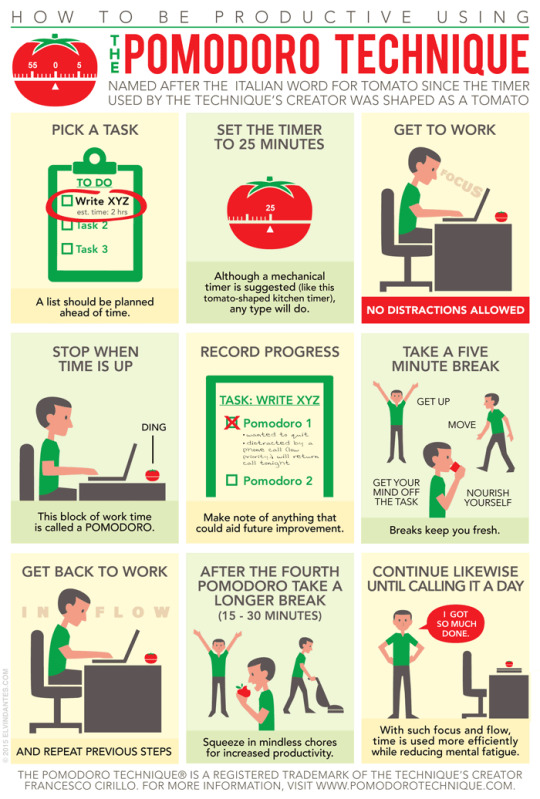
4K notes
·
View notes
Link
Some tips for staying on top of a difficult college class.
0 notes
Text
Your first year of college is very important.

I’m going into my senior year at Columbia University in New York City.
Each year has brought different things to look forward to, stirred different emotions, struck different cords – but those most influential originated my freshman year.
In your first year of college…
Keep reading
50 notes
·
View notes
Link
While this is geared towards teachers, reflecting on the five questions is a worthwhile exercise for college students as well.
0 notes
